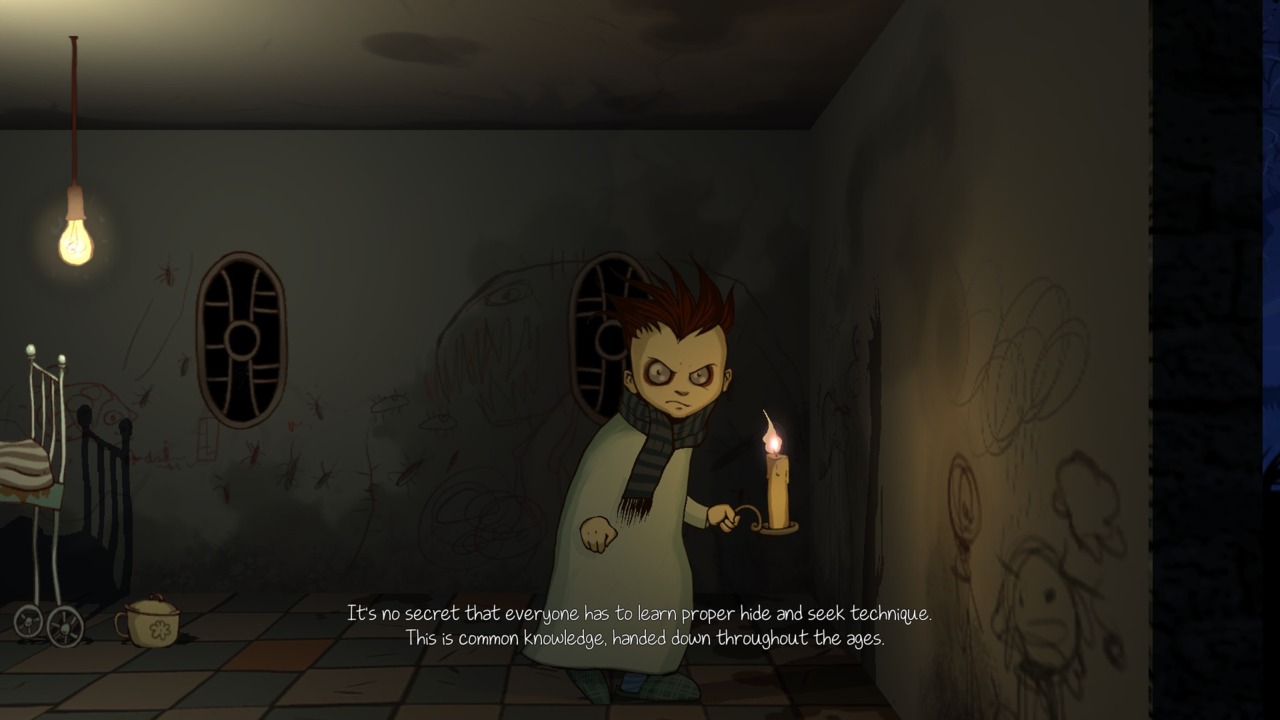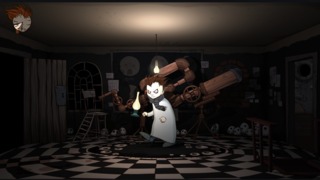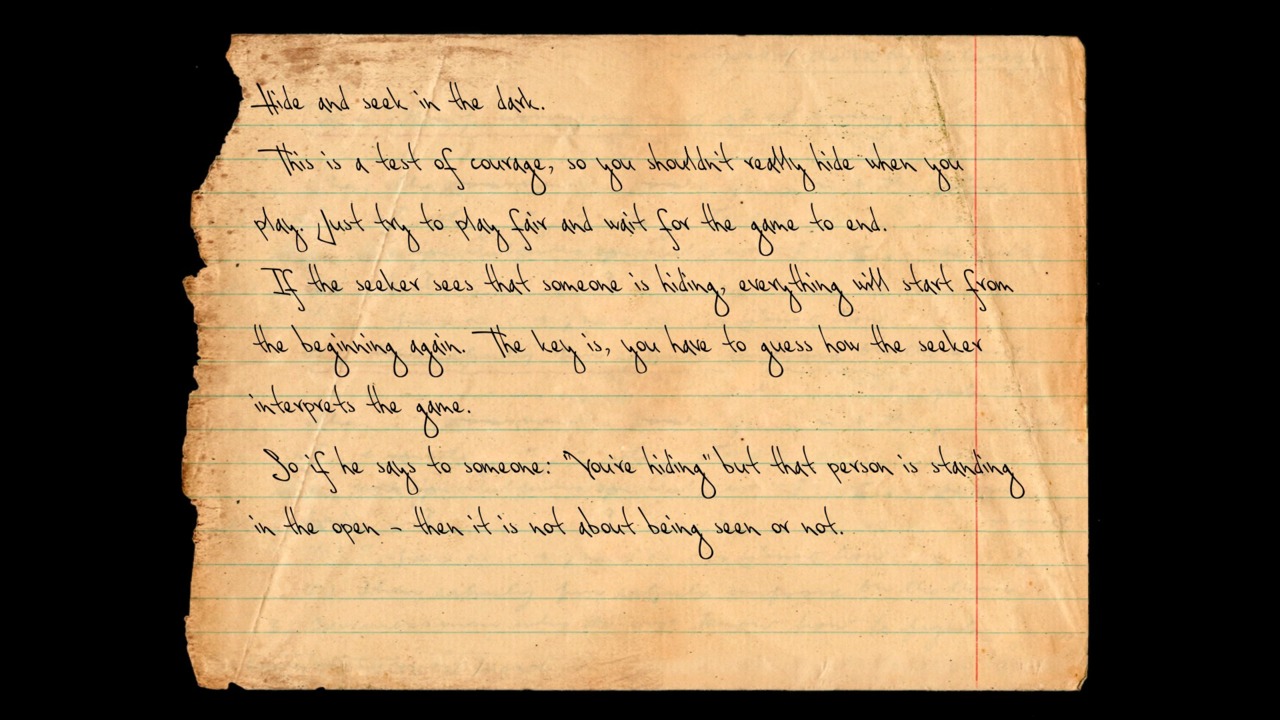"What you see before you is not exactly what one would call 'a game.' It's more like an interactive meditation, reenacted from scattered evidence, that happened to fall into our hands. It was built according to instructions, left by the original archive's anonymous donor."
These words are the first thing you see when you start Knock-knock, and they set an unsettling tone. Like the ad campaign for The Blair Witch Project that marketed the film as found footage of a real incident, Knock-knock tries to sharpen the edge of its psychological horror by suggesting that the game you're playing just might be an interactive reflection of a horrifying truth. But the experience that follows squanders the power of this concept, as you repeatedly run up against the game's deliberately perplexing mechanics, and fear quickly gives way to frustration.

At first, Knock-knock is intriguing. You play as a man whose sanity is immediately questionable. His disarrayed hair and red-rimmed eyes suggest mental instability. He makes frequent asides to you directly, looking at the camera and talking about his state of exhaustion, the terrible migraines he's been suffering from, and his haunting memories of the house you move through. Each section begins with him waking and climbing out of bed, but it's impossible to know if he's really awake or if you are experiencing his nightmares. It's also impossible to know if the horrifying sounds of doors being pounded on and ghostly voices saying menacing things are real, or just a manifestation of his psychosis. As you take your first tentative steps through the nearly impenetrable darkness of the house, the candle in your hand casting little light ahead of you, these sounds conjure horrors in your mind, always seemingly lurking just out of sight in the shadows ahead.

Each room has a lamp in it that you can light to reveal your surroundings, though during the few seconds it takes to ignite a lamp, the room is shrouded in complete darkness, with not even the light of your candle visible onscreen. Lighting rooms is essential to help you find strange clocks that look like the protagonist, but with a clock face where his human face should be. Winding these clocks brings the dawn closer, and you survive each stage by making it to dawn. However, you're not alone in the house. As you move through the outlandish rooms, specters emerge, and should you encounter any of these, you lose a lot of your progress toward dawn. Lose all of that progress, and you crawl back out of bed and start the night over.
All you can do in Knock-knock is open doors, ignite lamps, hide behind certain objects, and move slowly from left to right and, in rooms with ladders, move up or down to other floors. So it becomes a game of hide-and-seek as you try to explore the house and find clocks without encountering the horrors that seek to keep you trapped in the dark of night forever. But Knock-knock offers no clue as to the logic that governs this game, and as you find yourself time and time again being found by frightful spirits and not quite understanding what you're supposed to be doing to avoid them, all the scary sound effects and eerie shadows that so effectively created an atmosphere of dread rapidly become needling reminders of your frustrating, seemingly inescapable plight.

Eventually, with significant experimentation and error, you may form an understanding of the game's logic that works well enough for you to muddle through most stages, but by this point, Knock-knock's attempts at being scary have lost all power, and the game becomes a dry exercise of patterns and systems. To make matters worse, during the final few stages, your character's sanity rapidly dwindles. The game makes no effort to communicate the significance of the white line across the top of the screen that fades over time, but it is tremendously significant. Should you make it to the final stage with all of your sanity squandered, your attempts to proceed are greeted with a Game Over screen. If you find yourself in this situation and want a shot at getting a proper ending, you may need to replay the entire game from the beginning, and hope that next time, you get through those last few stages more quickly. It's a punishment so severe and mind-boggling that falling victim to it may make you understand your character's mental state more clearly than you have any desire to.
Pushing up against a game's systems to come to an understanding of how it works can be a wonderful process of discovery, but Knock-knock is so opaque that working out how to play it isn't a rewarding process, but a tedious one. Its early moments make it appear poised to work its way into your mind and rattle you from the inside. But when it becomes clear that success isn't a matter of overcoming psychological terrors but of discerning rigid, obfuscated logic, Knock-knock reveals itself to be not something horrifying that defies all understanding, but simply a mundane, frustrating little puzzle box.